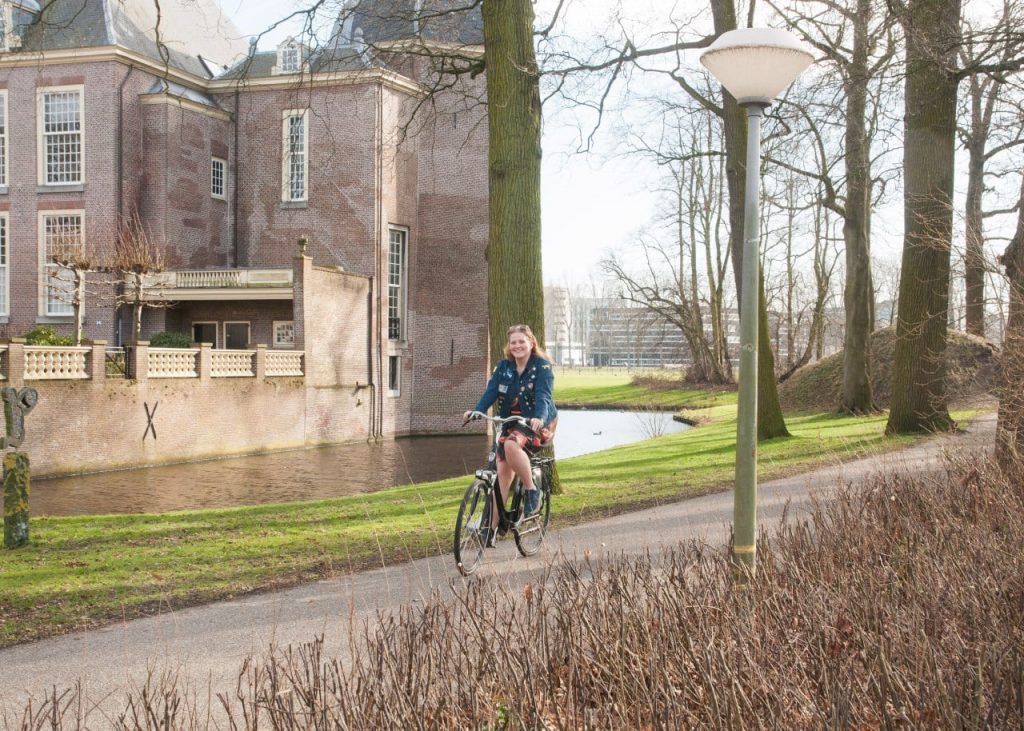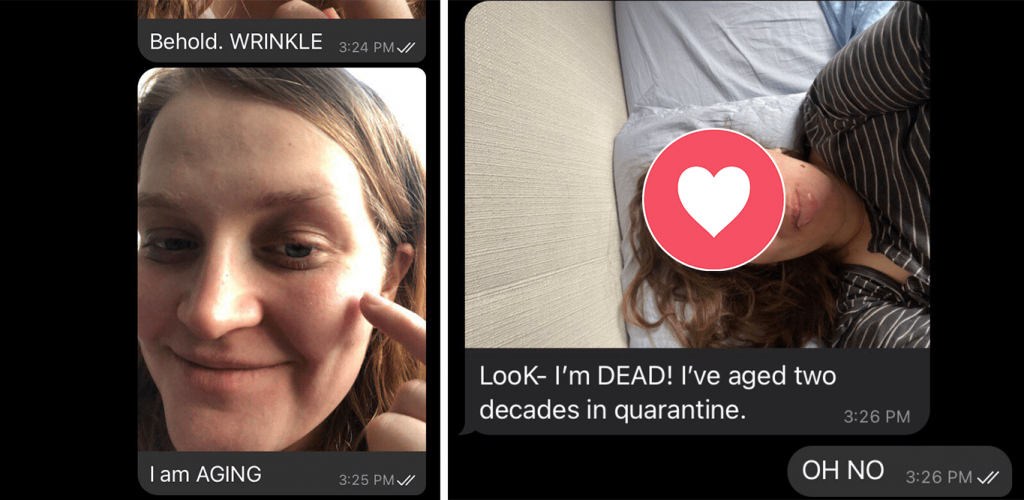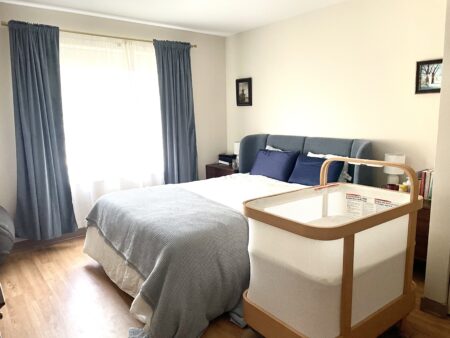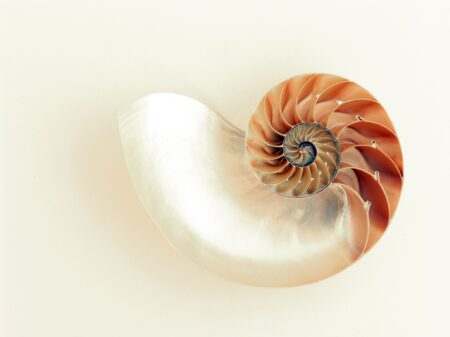This blog post includes talk of weight and weight loss.
Today, during the spiritual formation group I attend before church, I was asked how my relationship with my body informs my faith. Our group is currently working through a book together, and today’s chapter was on sexuality and the physical self. But when I heard the question, it struck me in a different way.
I’ve been thinking a lot about my body lately. In itself, this isn’t new; I’m a woman, and women are taught to think about our bodies all the time. Its beauty, or lack of it; its fittingness and unfittingness; the ways it’s changing, and what that means for our societal relevance. Like many people, I’ve gone through periods where I felt very disconnected from my body. But in the the last two years or so, I’ve made an effort to change that. From running, hiking, and biking, to therapy, meditation, and the occasional mojito on the beach, I’ve learned to connect to it in new ways. It’s felt like a reclamation of sorts: the conscious decision that I’m inhabiting this space, and I’m going to enjoy it.

For a long time, I struggled to tie that journey to my faith. The Church has a bit of a mixed track record of dealing with the body; if not theologically, then at least culturally. From fasting and asceticism to purity culture, we have a hundred ways of telling Christians that their physical selves are lesser; that the denial of the physical self is the elevation of the spiritual self. What role does physical expression and joy have left to play in the Christian life?
It’s kind of remarkable, if you think about it. Shouldn’t Christians, of all people, have a rich vocabulary for bodily experience? After all, we believe that God had a body. We believe God chose to live a human life on earth, skin and sandals and all. So why don’t we believe that the bodily can be sacred? Not just in its denial, but in its experience?

Last summer, during a coronavirus low here in the Netherlands, Ken and I biked to the lake to go swimming. It was late afternoon, and the sun’s hue was turning peachy-orange as it began to dip lower in the sky. As Ken sat on the shore to read, I swam out as far as I could, until the bottom of the lake dropped off and there was no ground below to keep me anchored.
Treading water as I caught my breath, I became keenly aware of the moment. The slow tug of the current against my legs; the feeling of the breeze hanging low over the water, sweeping across my face; the sound of birds calling across the lake. I felt the warmth of the sun on my skin. Sunlight danced on the surface of the water around me, so bright it was almost blinding.
There were so many different feelings to take in that it was almost overwhelming. Washed over with sight and sound and feeling, I was overcome with a feeling of gratitude. The moment was so rich with complexity that the very act of taking it all in felt like a hallelujah.
In that moment, my physical, emotional, and spiritual selves were experiencing the same thing all at once. I felt the nearness of God in a way that I wouldn’t have if it hadn’t been for my body. That, I think, was the moment that I figured out how this physical and spiritual stuff tied together. And though I didn’t think of it then, I realized today that the Church actually has a model for these kinds of physical-spiritual experiences: baptism. We believe that moments of enormous spiritual significance can be rooted in small physical acts.
That relationship is a two-way street. Just as my physical experience informs and contributes to my understanding of God, my faith also informs my relationship with my body. Our society places enormous expectations on our physical bodies; entire industries, moving around billions of dollars a year, can only exist on the basis of our dissatisfaction with ourselves. Thigh gaps, hip dips, Facetune, fillers, ‘pillowface’… we come up with new benchmarks, new standards, and new tools for achieving those standards every year.

I’ve been very lucky to have learned early on how to hold my relationship with my appearance in a light grip. Towards the end of college, and in my first few years of living in the Netherlands, I weighed close to 300 pounds. Being heavy made me invisible, in a way. I didn’t get much attention; I couldn’t find many clothes I liked that fit. But in that time, I had a wonderful life. I got married. I made wonderful memories and took beautiful trips with my best friends. I switched careers and excelled. My lack of visibility didn’t take away from my joy or emotional life in the slightest.
That’s not to say it didn’t affect me in other ways. After a pretty bad back injury just before my wedding, I realized I needed to lose weight in order to prevent further damage to my back and knees. And having lost a fairly large amount of weight in the eyes of the world, I’m finding that I’ve become “visible” again. I sometimes get checked out in the city; strangers treat me differently; my mom often tells me I’m beautiful (but, hey, she’s my mom).
At the same time, my friends and I are hitting that point in our late twenties where we’re starting to realize we’re getting older. One best friend is getting gray hairs; another sent photos back and forth with me of the fine lines we’re starting to notice on our faces. We’re all aging, and for women especially, that comes with a certain amount of existential angst. Will I still be beautiful when I’m older? When am I no longer ‘in my prime’? What will be left of me when the world calls me invisible?

I think my experiences with my weight have made me more resilient to those fears than some. From my personal experience I know that, whether or not I’m beautiful or noticed, I can still have a rich and joyful life. And the golden thread running through me, in all my versions, is this: neither before losing weight nor while my body was changing, did I ever hate, or even dislike, my body. I have always been able to love, or at least accept it, in part because I don’t believe that God loved me any more or less in any version of my physical self. Not when I was three years old, not when I was 300 pounds, not today. Not with a wrinkle-free face and not when I’m a glorious, gray-haired raisin woman (should I be so lucky). And if God doesn’t value me any differently in different packaging, then I won’t, either.
So here’s my answer to this morning’s question: my body and faith inform each other. They can’t do anything but. My eyes, ears, lungs, and fingertips teach me to see and know God in new ways. And my belief reminds me that no part of my physical self — my body, my weight, my expression, my age — has a say in my worth.
In living a faithful life, my physical, emotional, and spiritual selves are inextricably tied. In the sacred, in the mundane; in the middle of the lake, dancing together like a hallelujah; reflecting the image of God like a tiny, refracted mirror of the Trinity.






Your honesty and beauty is beyond your years. It takes many of us many years and hard experiences to learn to love our bodies as the vessel God gave us to travel this life in. God bless you.
Ok then. I am many years your senior and never could express this as well. Thank you for writing what my heart needed to hear.
Thank you so much for taking the time to read and comment, Rosemind. I’m happy my words resonated with you!
Reading this in 2025 and I’m so grateful to have stumbled upon this story! Thank you for sharing your perspective! It can be tough for women out here.